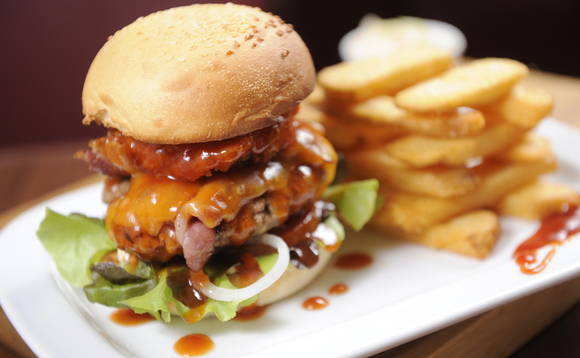
Casual dining: Still private equity's plat du jour?

Regulatory and commercial pressures are on the horizon for assets in the casual dining sector. Taylor Wessingтs private equity partner Ed Waldron and Ed Story, head of the firm's consumer and retail group, explore the implications for private equity
For several years, private equity has feasted on the UK casual dining sector. Pizza Hut, Côte, Byron, Pizza Express, D&D, Casual Dining Group, Prezzo, Franco Manca and Gaucho are just a few of the brands to have been the subject of private-equity-backed buyouts and, in some cases, secondary buyouts. The drivers for private equity's appetite are clear: strong cash-generation and cookie-cutter scalability, together with a strong consumer brand.
The market is also moving with the investors; the dining out sector is seeing a sustained period of year-on-year growth, particularly for those new brand entrants and existing brands undertaking rapid roll-outs.
However, there are questions as to whether commercial and regulatory pressures are threatening to spoil the party. So long as you have a strong brand and management team, the answer is "probably not".
Hot property
Competition for brands has prompted increasing prices, with some brands changing hands for double-digit valuation multiples. The Côte deal (bought by CBPE Capital in September 2013) valued each of the company's leasehold restaurants at £3.7m, the equivalent of two-and-a-quarter years of sales.
Aside from where there is a compelling growth story, or re-positioning opportunity, these multiples may be increasingly difficult to justify for effectively leasehold asset businesses. In addition, the uncertain impact of Brexit (and threats of inflation) more generally on the sector is making it difficult for some investors (as well as businesses) to make long term capital-intensive decisions.

As retail moves increasingly online and off the high street, this opens up new outlet opportunities for the leisure sector"
The rapid expansion of brands has prompted fierce competition for sites, particularly in London, where rents in the city centre have doubled in the past 12-24 months. Rental premium between London and the rest of the country has swelled from 2-3x to 5-10x.
New brand entrants who are looking to build a platform, such as Five Guys, are setting new benchmarks for rents in prime locations and this is feeding down into secondary and tertiary sites. The more established brands, however, have good and increasing national coverage; as retail moves increasingly online and off the high street, this opens up new outlet opportunities for the leisure sector.
Workforces and operating costs
Soon after businesses had to take account of new auto-enrolment pension obligations, the national living wage was introduced, on 1 April 2016, which means the pay of over-25s starts at £7.20 per hour, rising to £9 by 2020. In addition, post-Brexit, the Home Office is actively investigating food and beverage workforces and enforcing immigration irregularities, as seen recently with Byron and others.

The food and beverage sector is likely to undergo its own version of 'Marmite-gate', with suppliers looking to pass on cost increases"
The availability of EU migrant labour also looms large in the wake of Brexit. In an industry that relies heavily on low-skilled migrant labour, workforce availability and wage bills could become increasingly challenging.
The food and beverage sector is likely to undergo its own version of "Marmite-gate", with suppliers looking to pass on cost increases as a result of sterling-influenced price fluctuations, the new living wage and other factors. Given the current average cost of a licensed on-trade site is 49% of turnover, before cost of sales and rent, impending supplier cost increases will be very unwelcome.
Business rates will be revalued with effect from April 2017, the first revaluation since 2010. This is likely to result in a material increase for many casual dining businesses, particularly those with sites in areas where rents have significantly increased since 2010 – such as London and Oxford – and will add further operating cost pressure on businesses.
Growth opportunities
There is no doubt that some of these cost increases will be passed on to the consumer; however, as frequent (casual) dining out becomes increasingly less of a luxury, it is unlikely to be the first thing cut from the family leisure budget.
While there are pressures on the sector, there are positive signs for brands to take comfort from. The British Hospitality Association is predicting increased tourist numbers travelling to the UK on the back of the weak pound, inevitably leading to increased leisure revenues.
Companies with strong brands will continue to offer an opportunity for further national and international expansion and/or franchising, for those with the foresight and cash to invest in a brand and its growth.
Latest News
Stonehage Fleming raises USD 130m for largest fund to date, eyes 2024 programme
Sponsor acquired the public software group in July 2017 via the same-year vintage Partners Group Global Value 2017
Stonehage Fleming raises USD 130m for largest fund to date, eyes 2024 programme
Czech Republic-headquartered family office is targeting DACH and CEE region deals
Stonehage Fleming raises USD 130m for largest fund to date, eyes 2024 programme
Ex-Rocket Internet leader Bettina Curtze joins Swiss VC firm as partner and CFO
Stonehage Fleming raises USD 130m for largest fund to date, eyes 2024 programme
Estonia-registered VC could bolster LP base with fresh capital from funds-of-funds or pension funds








